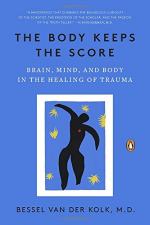
|
| Name: _________________________ | Period: ___________________ |
This test consists of 5 multiple choice questions, 5 short answer questions, and 10 short essay questions.
Multiple Choice Questions
1. In what year was the novel All Quiet on the Western Front published?
(a) 1929.
(b) 1903.
(c) 1919.
(d) 1940.
2. In what year did Van der Kolk convince a circuit court judge that memories of sexual abuse often remain inaccessible to victims for years?
(a) 1996.
(b) 1979.
(c) 2003.
(d) 2011.
3. For how many years did Maria participate in an equine therapy program?
(a) 3.
(b) 4.
(c) 2.
(d) 5.
4. Generally, a memory is captured more vividly if more of what substance is secreted at the time the memory is made?
(a) Pheromones.
(b) Dopamine.
(c) Serotonin.
(d) Adrenaline.
5. In what state did Van der Kolk work with kids in the Children's Center at a particular mental health center?
(a) Florida.
(b) New York.
(c) Maine.
(d) Massachusetts.
Short Answer Questions
1. How old was Maria when she first came to Van der Kolk's residential treatment center?
2. How does Van der Kolk describe the patterns of a survivor of unresolved trauma?
3. In what year did a particular country's government issue the Southborough Report?
4. Before the outbreak of a particular war refocused society's attention on trauma, what method of psychological treatment had risen to prominence?
5. A character from which novel provides the quote for the epigraph of Chapter 11, "Uncovering Secrets: The Problems of Traumatic Memory"?
Short Essay Questions
1. What are ACEs?
2. Describe Maria's feelings about the skills her favorite type of therapy was able to teach her?
3. What does Van der Kolk mean when he states, "Traumatized people simultaneously remember too little and too much" (179)?
4. Describe the three organized attachment strategies and the differences among them.
5. In what way does the epigraph included with Chapter 7: Getting on the Same Wavelength: Attachment and Attunement depict the theme of community?
6. How old was Maria at the time Van der Kolk began working with her and what situations had she been in before?
7. What is the one caveat Van der Kolk presents in relation to his claim about adrenaline in Chapter 11, "Uncovering Secrets: The Problems of Traumatic Memory"?
8. Describe an instance when Van der Kolk points out the irony in a particular societal situation.
9. What sort of therapy was prescribed to Maria when other methods were ineffective?
10. What is the significance of Van der Kolk's frequent study of Janet's case reports over time?
|
This section contains 1,135 words (approx. 4 pages at 300 words per page) |

|




